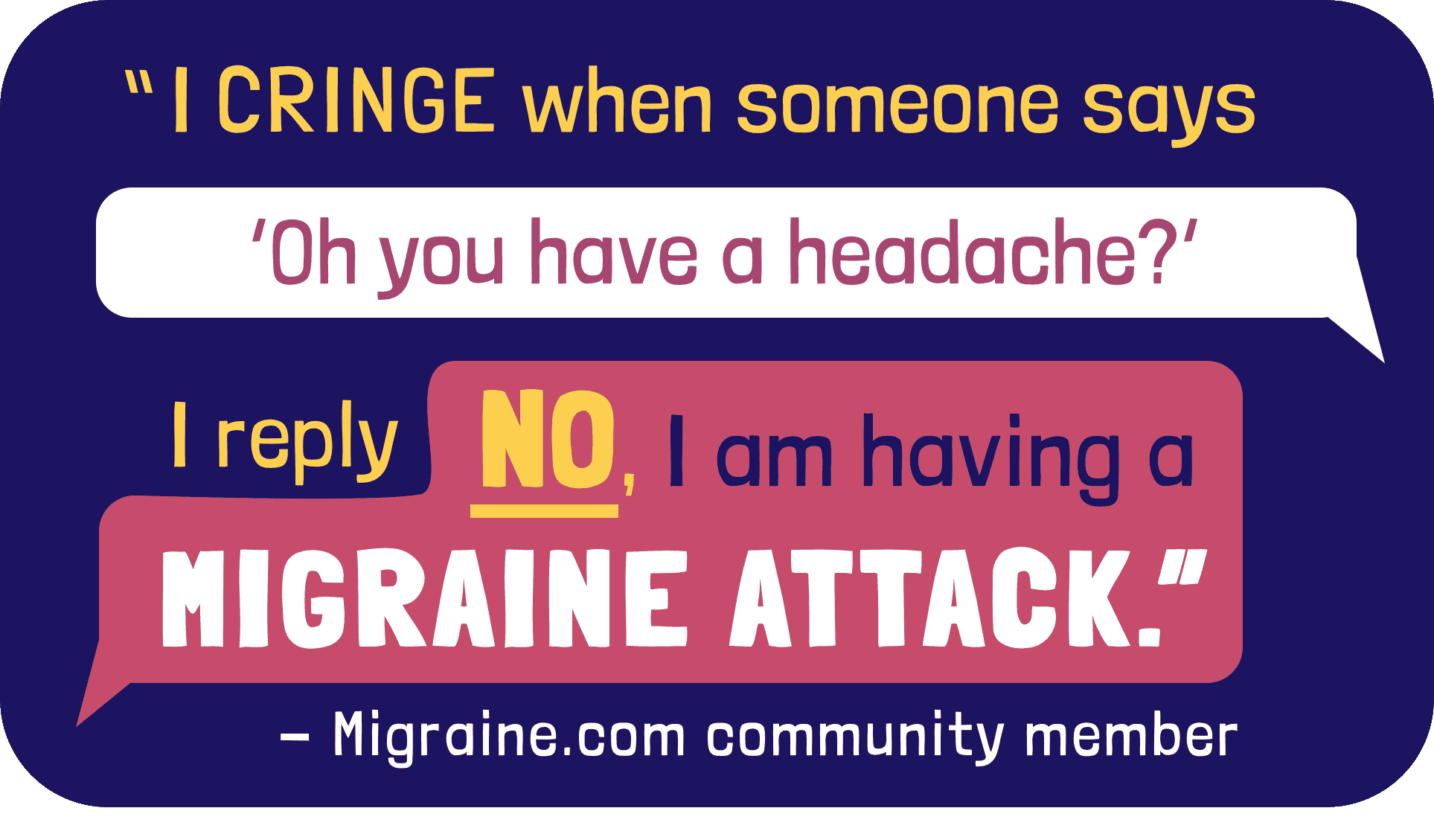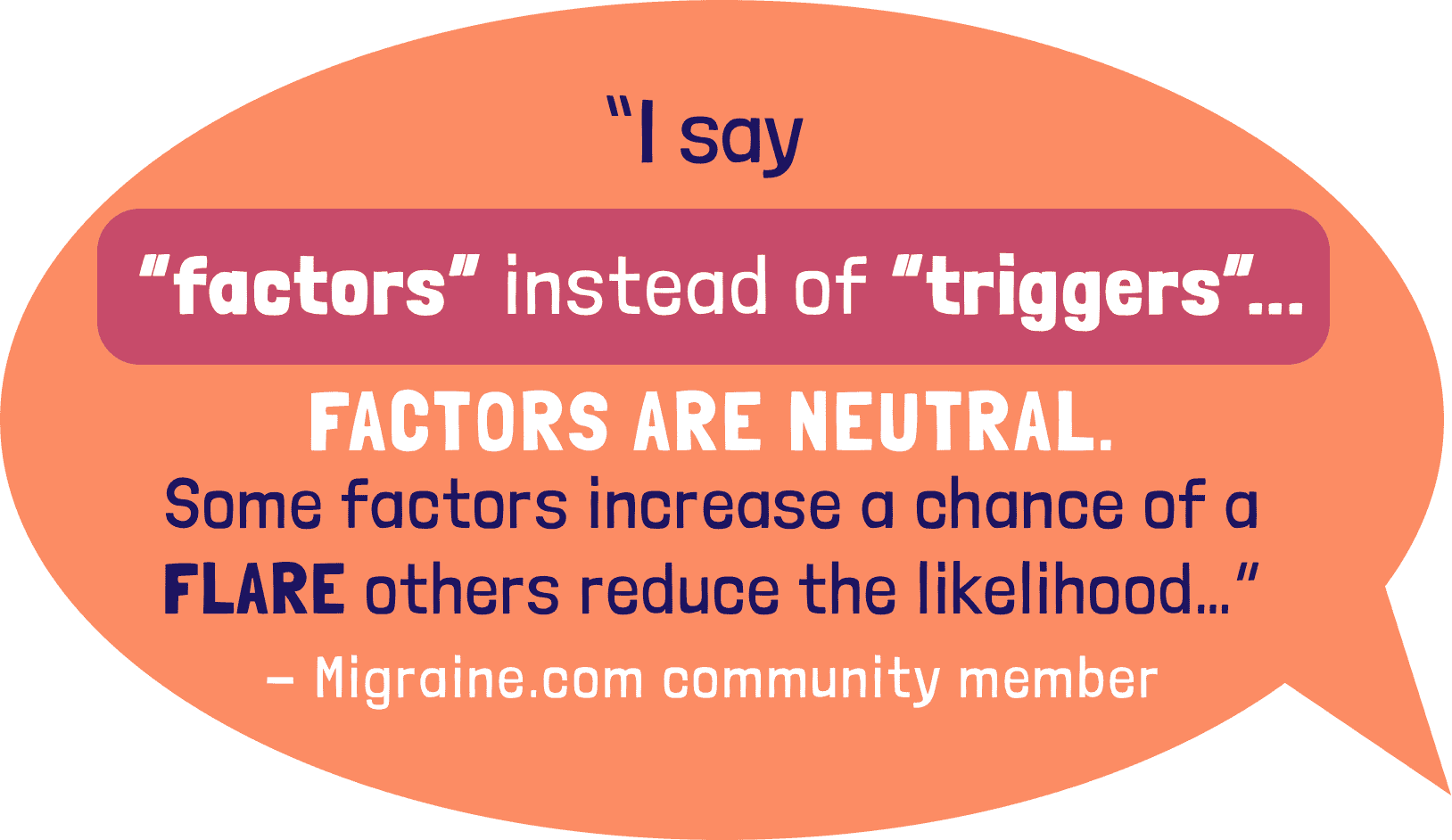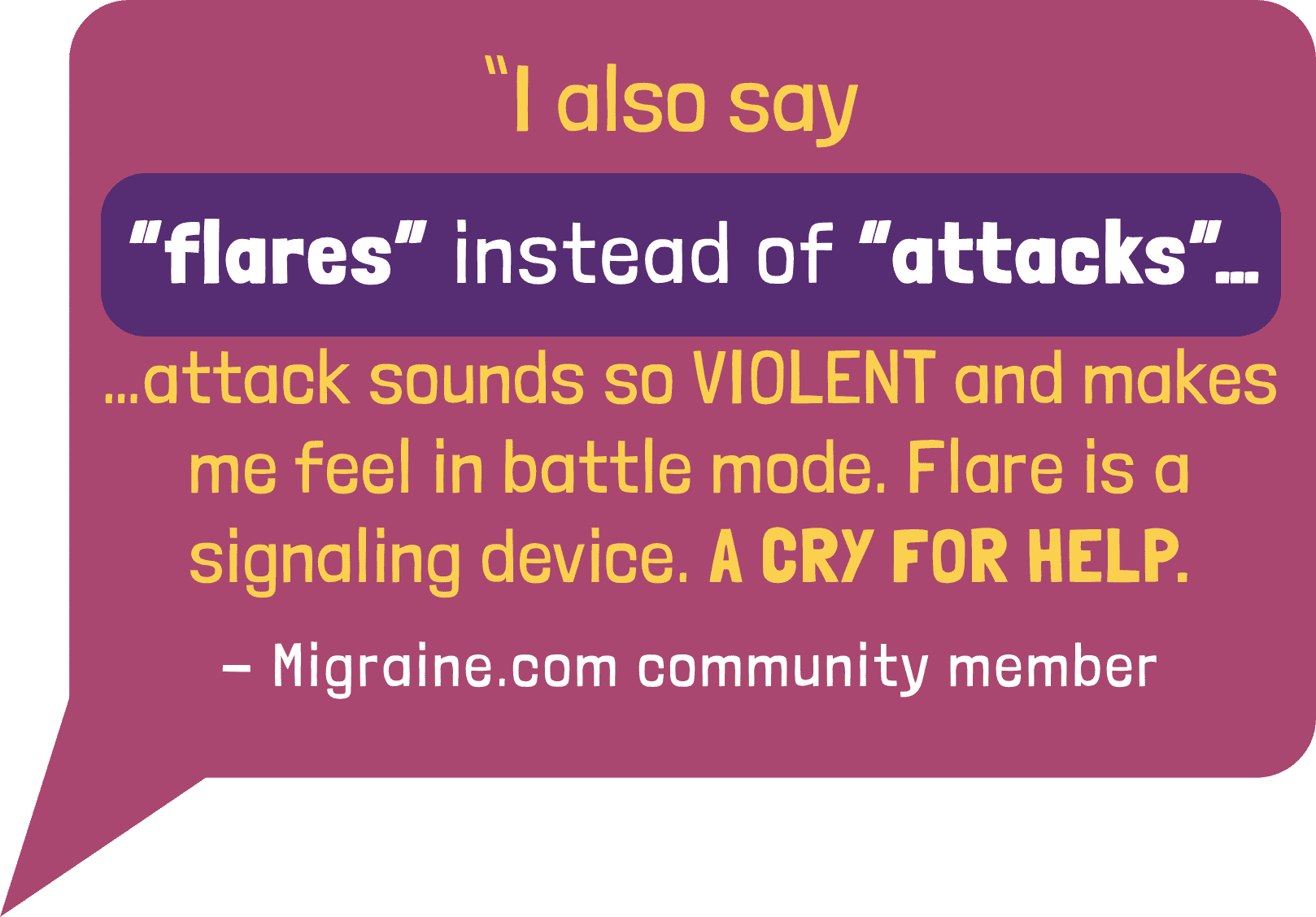The Language of Migraine: What We Say Makes a Difference
Migraine is complex, which makes defining and describing our relationships with it challenging. It is important to use terms that accurately reflect our experiences with migraine while respecting others' preferences and comfort levels.
Featured Forum
View all responsesWe asked our Health Leaders (HLs) how they depict who they are in relation to migraine and which terms they prefer to describe migraine. Here is what they had to say.
How do we describe who we are in relation to migraine?
There are several ways to describe who we are in relation to migraine. For example, the terms “migraineur” and “migraine sufferer” have been used in the past, but they appear to be more outdated now. For some Health Leaders, “migraineur” and “migraine sufferer” give the feeling that migraine is someone’s whole identity.
“‘Migraineur’ I just don’t relate to,” says Anna. “I have no idea where it came from and it doesn’t describe me as a human. I’m more than migraine.”
Having agency over a chronic condition means managing it and living life on your own terms. These days, using person-first language is preferred. In fact, many HLs prefer the phrase “person with migraine.”
“I want to take control of my life and my condition,” says Amanda, who prefers “person living with migraine.” “This label shows that I am still living my life while managing my condition and that I am my own person.”
While migraine can be all-consuming, people with migraine refuse to let the disease define them entirely. According to Kerrie, “Migraine already consumes so much of my life. I don’t want it to consume my identity as well.”
“Migraine has taken things from my life and shaped many experiences, but regardless I am a person first,” adds Lisa. “I’m not always suffering. I can still enjoy my life despite the pain.”

What are the preferred terms for migraine?
Migraine has a profound impact on people’s lives. So, which term best describes it: disease, disorder, condition, or something else?
Why might someone prefer "disease"?
Using the term “disease” to describe migraine emphasizes the profound effect it can have on people’s everyday lives. For example, Nancy notes that migraine “can impact the entire body.” She says using terms other than “disease” “downplays the severity of migraine,” advancing the perception of it as mere headaches.
Similarly, Lisa expressed that migraines “are something we have to live with and manage our entire lives. Even in times of low symptoms or frequency, it is still a part of our biology that is not functioning to serve us.”
Why might someone prefer “disorder”?
Ashley prefers the term “disorder.” “I feel ‘headache disorder’ is more appropriate, but I don’t mind disease or condition,” she says. “I take issue with people saying migraine is more than just a headache because it implies cluster headaches are not severe.”
Cluster headaches are indeed known for their extreme intensity. They are often considered among the most agonizing medical conditions.1
Ashley highlights the fact that we should be sensitive to language choice. She thinks all headache disorders – including migraines and cluster headaches – should get appropriate recognition for their severity and impact on people’s lives.
Why might someone prefer “condition”?
In medicine, the term “condition” refers to a person's state of health. Laura appreciates that the term "doesn't have movement or work associated with it.” She adds, “It just is. The condition of me is I have migraines . . . Even if I do everything, I will still have a migraine condition, and I didn't fail.”2
Meanwhile, Holly prefers “condition” because she finds “disease” a bit too medical. To her, “condition” “feels more comfortable and less loaded.”

How do we describe symptoms: Migraines, attacks, or episodes?
There are plenty of terms used to describe migraine symptoms as well. For example, when Amanda is having a migraine flare-up, she simply calls it a migraine. After all, she explains, “that is what my body is dealing with at the time.”
For Laura, since her flares have multiple instances of events, “episodes” seems most accurate. On the other hand, Anna prefers using the word “attack” to describe her migraine and cluster headaches.
Tonya adds, “We use ‘attack’ to describe other health-related issues, too, such as allergy attack and asthma attack. I look at it as something outside invading my body.”
HLs also strongly believe that the appropriate language depends on whether you live with migraine or cluster headaches. Ashley explains, “While some types of migraine disease could come on quickly and be considered attacks, I don’t think most migraine types fall into that category. Cluster headaches by definition come on quickly and qualify as an attack.”

What sets off attacks: Triggers or causes?
Whether to use "trigger" or "cause" is also a hot topic of conversation. For a lot of the migraine community, the term “triggers” appropriately describes what instigates migraine and migraine attacks.
“I use the term ‘trigger’ because it makes me think of a light switch to a room,” says Lisa. “The switch turns the light on, while the ‘cause’ of the light is the electricity in the house.”
Tom adds, “Triggers are subjective and fluid for many of us. Cause is more pointed on a single catalyst of an attack.”
Kerrie would prefer not to use “cause.” In her opinion, “the word ‘cause’ often is taken to imply fault – like I caused my migraine attack by doing X, when the fact is I have a genetic predisposition that causes me to have the condition called migraine and certain external inputs can trigger flare-ups of that condition.”
Is it medication overuse, adaptation, or rebound headache?
There are a few ways to describe the long-term overuse of medicines to relieve headaches and migraines. “Medication overuse headache” is the official term, but “medication adaptation headache” and “rebound headache” are also used interchangeably.3
Some HLs, like Ashley and Nancy, use the clinical name “medication overuse headache.” To them, it is easily understandable and describes exactly what is happening. Other HLs, like Anna, Tom, and Lisa, prefer “medication adaptation headache.” They feel that the term “overuse” implies the headache is the patient’s fault.
Meanwhile, Amanda, Kerrie, Tonya, and Holly use “rebound headache” for its simplicity and clarity. “‘Rebound’ to me reflects a simple cause and effect without judgment,” says Holly.

Why is language so personal?
At the end of the day, the way we describe migraine comes down to personal preference. Everyone is different. Some people have specific preferences, while others are more flexible.
“I use ‘disorder,’ ‘condition,’ and ‘illness’ interchangeably,” says Kerrie. “‘Disorder,’ ‘condition,’ and ‘illness’ all feel like accurate representations of where migraine fits in medical terminology.”
Tonya adds that it ultimately should be up to the person in question. “I do feel people should be free to describe their diseases however they like.”
If you know someone with migraine, ask them what language or terms they prefer. This shows that you are trying to be respectful and accurate based on their preferences.

Join the conversation